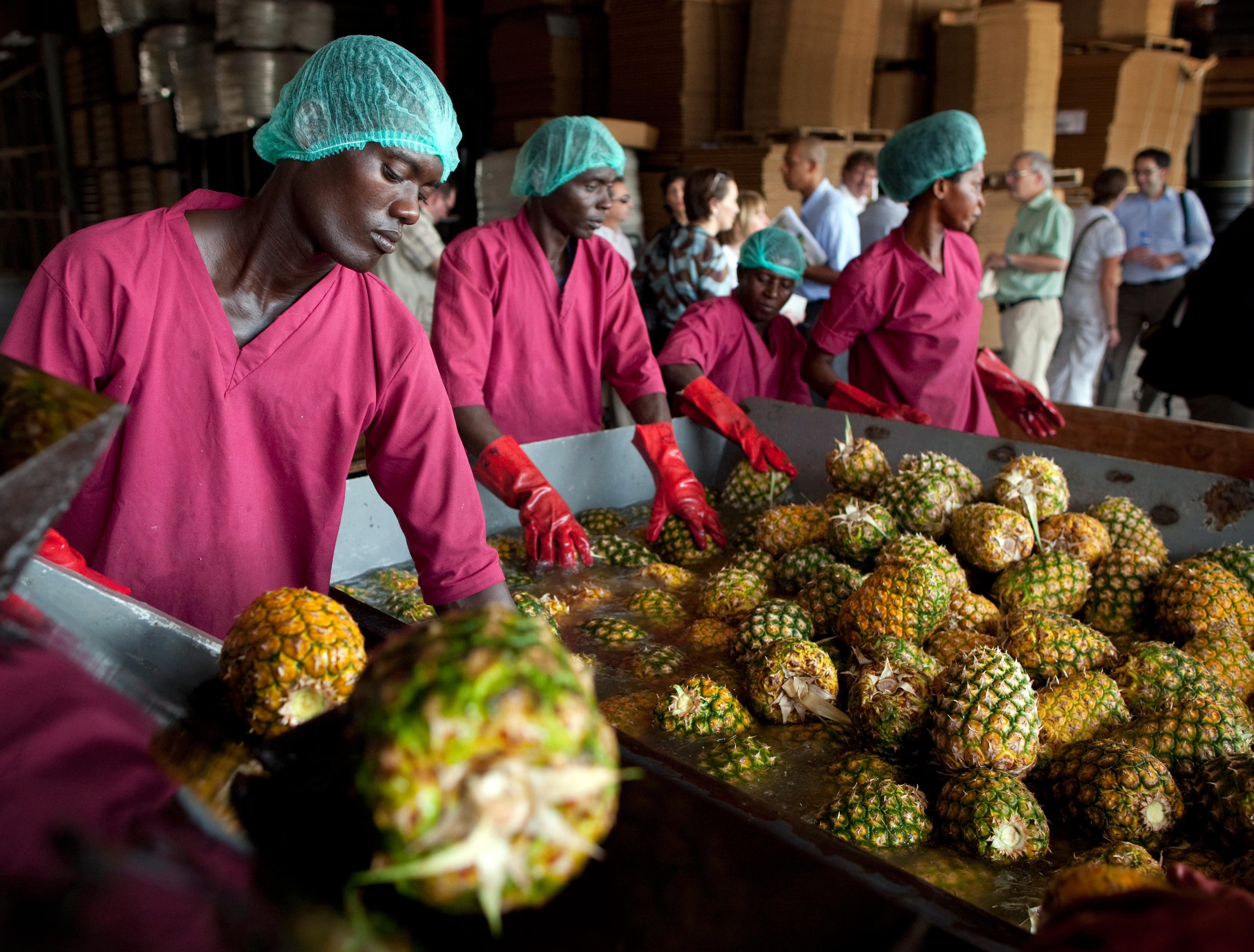Production of fruit juice for export to the European market (Asamankese, Ghana)
Copyright© Thomas Trutschel/photothek.net
Economic situation Good economic outlook and big challenges
In the medium term, the economic outlook for Ghana is good. After large reserves of oil and gas were discovered off the coast in recent years, oil has become the country’s second most important export commodity, after gold. Ghana has been a member of the Extractive Industries Transparency Initiative (EITI) since 2010.
However, the highly mechanised extractive sector creates few new jobs. Economic performance in labour-intensive sectors such as agriculture and the manufacturing industry has been poor and stagnating for decades.
The sale of cocoa generates considerable income, as Ghana is the world’s second largest cocoa producer, after Côte d’Ivoire. Starting in 2010, the country has begun to export significant volumes of other agricultural products such as pineapples and mangos. This is an important step towards reducing its economic dependence on just a few export goods.
Challenges
Ghana’s economic growth is subject to huge fluctuations: in the past years, growth has ranged from 0.9 per cent (in 2020) to 14 per cent (in 2011). Then, as a result of the COVID-19 pandemic, the economy shrunk massively in 2020, picking up only slowly in 2021 and 2022. The International Monetary Fund (IMF) is predicting economic growth of just 1.2 per cent for 2023.
However, Ghana is faced with a debt crisis, high inflation and the devaluation of the local currency, the cedi. This limits the government’s room for manoeuvre. In May 2023, the IMF Executive Board approved an Extended Credit Facility arrangement of roughly three billion US dollars.
Investment climate
Bureaucratic red tape, uncertainties relating to the acquisition of land and to the enforcement of legal claims, and the lack of fully trained workers, inadequate transport infrastructure, high interest rates and widespread corruption are all detrimental to investment. New regulations regarding local participation and value creation, which are intended, among other things, to ensure that the country receives higher revenues from the oil and renewable energy sectors are a deterrent for potential international investors.
As at: 27/10/2023
